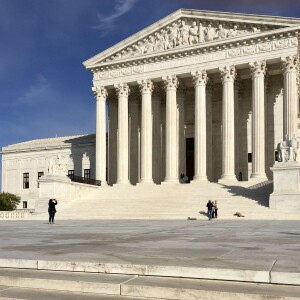
Culley v. Marshall
Petitioner Halima Culley loaned her car to her son, who was later pulled over by Alabama police officers and arrested for possession of marijuana. Petitioner Lena Sutton loaned her car to a friend, who was stopped by Alabama police and arrested for trafficking methamphetamine. In both cases, petitioners’ cars were seized under an Alabama civil forfeiture law that permitted seizure of a car “incident to an arrest” so long as the State then “promptly” initiated a forfeiture case. Ala. Code §20–2–93(b)(1), (c). The State of Alabama filed forfeiture complaints against Culley’s and Sutton’s cars just 10 and 13 days, respectively, after their seizure. While their forfeiture proceedings were pending, Culley and Sutton each filed purported class-action complaints in federal court seeking money damages under 42 U. S. C. §1983, claiming that state officials violated their due process rights by retaining their cars during the forfeiture process without holding preliminary hearings. In a consolidated appeal, the Eleventh Circuit affirmed the dismissal of petitioners’ claims, holding that a timely forfeiture hearing affords claimants due process and that no separate preliminary hearing is constitutionally required.
Held: In civil forfeiture cases involving personal property, the Due Process Clause requires a timely forfeiture hearing but does not require a separate preliminary hearing.
KAVANAUGH, J., delivered the opinion of the Court, in which ROBERTS, C. J., and THOMAS, ALITO, GORSUCH, and BARRETT, JJ., joined. GORSUCH, J., filed a concurring opinion, in which THOMAS, J., joined. SOTOMAYOR, J., filed a dissenting opinion, in which KAGAN and JACKSON, JJ., joined.
Read by RJ Dieken.
More Episodes
 2018-06-18
2018-06-18
 2018-06-18
2018-06-18
 2018-06-15
2018-06-15
 2018-06-11
2018-06-11
 2018-06-11
2018-06-11
 2018-06-05
2018-06-05
 2018-06-05
2018-06-05
 2018-06-04
2018-06-04
 2018-06-04
2018-06-04
 2018-05-29
2018-05-29
 2018-05-29
2018-05-29
 2018-05-14
2018-05-14
 2018-05-14
2018-05-14
 2018-05-14
2018-05-14
Create your
podcast in
minutes
- Full-featured podcast site
- Unlimited storage and bandwidth
- Comprehensive podcast stats
- Distribute to Apple Podcasts, Spotify, and more
- Make money with your podcast
It is Free
- Privacy Policy
- Cookie Policy
- Terms of Use
- Consent Preferences
- Copyright © 2015-2024 Podbean.com





